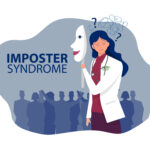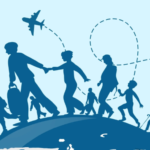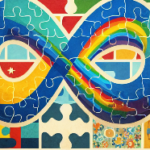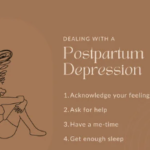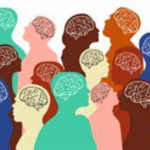Autism Spectrum Disorder (ASD) is an increasingly recognized condition affecting countless individuals and families worldwide. In Nigeria, autism awareness is growing, yet many still struggle with misconceptions and stigma. You may wonder how socioeconomic factors play a critical role in shaping the experiences of those with autism and their families. This article discusses these dynamics.
Understanding these factors is essential for fostering a supportive environment and improving mental health outcomes for individuals with ASD. Never forget that.
Understanding Autism in the Nigerian Context
In Nigeria, autism is often viewed through a lens clouded by cultural stigma and misunderstanding. Even in 2024, many people still associate autism with traditional beliefs, viewing it as a spiritual issue rather than a developmental disorder.
This perception can lead to significant challenges for families, including social ostracization and a lack of community support. Recognize the profound impact of these cultural attitudes on families seeking help and understanding for their loved ones.
Family support systems are often strained by financial difficulties, inhibiting access to appropriate healthcare services or educational resources for children with autism.
The lack of widespread public knowledge about autism exacerbates feelings of isolation, complicating the family’s ability to navigate their unique challenges. Cultural awareness and education are vital in breaking down these barriers.
The Socioeconomic Landscape
Poverty remains a significant challenge in Nigeria, with the World Bank estimating that about 40% of the population lives below the national poverty line (World Bank, 2022).
This pervasive poverty limits access to basic healthcare, educational resources, and essential services, especially for families with children diagnosed with autism. When struggling to meet basic needs, seeking specialized medical care for autism often becomes a low priority.
Unemployment compounds these issues, creating a cycle of stress that can worsen mental health challenges. High unemployment rates, particularly among youths, lead to increased financial insecurity and negatively impact family dynamics.
According to Cambridge University Press, talking about the challenge of youth unemployment in Nigeria, “Young women, including ethnic migrants to major urban centers, turn to commercial sex work as a means of survival after failing to secure opportunities in alternative sectors.”
Adeola Dorcas Folorunso finds that stress related to economic instability is linked to higher rates of mental health issues, including anxiety and depression.
This situation is especially important for families with autism, as they may already be managing additional stressors.
Ongoing regional conflicts and political unrest also harm mental health in Nigeria. Areas plagued by violence and instability often lack adequate healthcare infrastructure, complicating access to services for those with autism.
When families are forced to relocate due to conflict, the disruption hinders their ability to secure ongoing support and services, leaving them vulnerable and isolated.
Barriers to Healthcare Access
Access to healthcare services is critical for individuals with autism, yet numerous barriers exist. The healthcare system in Nigeria is underfunded and understaffed, especially in rural areas where many families reside.
According to the World Health Organization, Nigeria has one of the lowest numbers of mental health professionals per capita in the world. This shortage limits the availability of necessary services, creating long wait times for appointments and inadequate treatment options.
Economic barriers also significantly impact healthcare access. Families often face high out-of-pocket expenses for autism-related services, which can be prohibitive, especially for low-income households.
As a result, many families delay seeking help until conditions become severe, requiring more extensive and costly interventions.
Cultural barriers further complicate access to care. In many Nigerian communities, traditional beliefs about health and illness deter families from seeking medical assistance.
Some may opt for alternative treatments at the expense of proven therapeutic interventions that could improve their child’s quality of life. Addressing these cultural misconceptions is essential for advocating better autism care.
The Cycle of Mental Health Challenges
As socioeconomic pressures mount, youth in Nigeria—particularly those with autism—may engage in risky behaviors as coping mechanisms. The lack of stable employment and social support can lead to increased substance abuse, criminal behavior, and mental health crises.
This cycle of despair often results in a loss of hope, pushing individuals and families into further isolation.
Adeola Dorcas Folorunso, a nurse and mental health advocate in Nigeria, highlights the stories of many families grappling with these challenges. She notes, “By the time youths seek mental health services, the condition has often escalated to a level requiring comprehensive treatment and support.” This underscores the urgency of addressing the root causes of these mental health challenges before they spiral out of control.
Community involvement is crucial. Empowering families with knowledge and resources creates a supportive environment where individuals with autism can thrive.
Community outreach programs, like those organized by Folorunso’s NGO, Matermental, play an essential role in fostering awareness and providing much-needed support.
Innovative Interventions and Community Support
Folorunso’s initiatives exemplify how targeted programs can make a significant difference. In 2023, she organized a summit titled “Beyond Baby Blues: Postpartum Depression,” which attracted over 250 participants.
This event provided free mental health screenings and resources from psychologists and mental health professionals. Such initiatives raise awareness and serve as a vital support network for families navigating mental health challenges.
In September 2024, Folorunso launched a dental outreach program specifically for children with autism in Iwo Osun State. This program provided over 150 children with free dental care, addressing health issues related to sensory sensitivities common in autism.
Programs like these demonstrate the importance of culturally sensitive, community-focused interventions that can significantly improve the quality of life for individuals with autism and their families.
You too can advocate for such initiatives. Engage with local NGOs and community programs that prioritize mental health and autism awareness. Support their efforts by participating in events or spreading the word about available resources.
Moving Towards Solutions
To create lasting change, it is crucial to advocate for equitable health policies that address the unique needs of individuals with autism in Nigeria.
This includes increasing funding for mental health services, training more healthcare professionals, and ensuring that autism-related services are accessible to all families, regardless of their socioeconomic status.
Community engagement is equally vital. Raising awareness through education can help dismantle the stigma surrounding autism and mental health, fostering an environment of acceptance and understanding.
Empowering families to advocate for their loved ones can also lead to meaningful change within communities.
Change starts at the grassroots level. Supporting local initiatives and raising awareness can help bridge the gap in healthcare access for individuals with autism, ultimately improving their quality of life.
Conclusion
Navigating the complexities of autism in Nigeria requires a multifaceted approach that considers the socioeconomic factors influencing mental health.
By understanding the challenges faced by families, you can advocate for change, supporting initiatives that promote awareness, education, and access to vital services.
Together, we can work towards a more equitable future for individuals with autism and their families in Nigeria.


